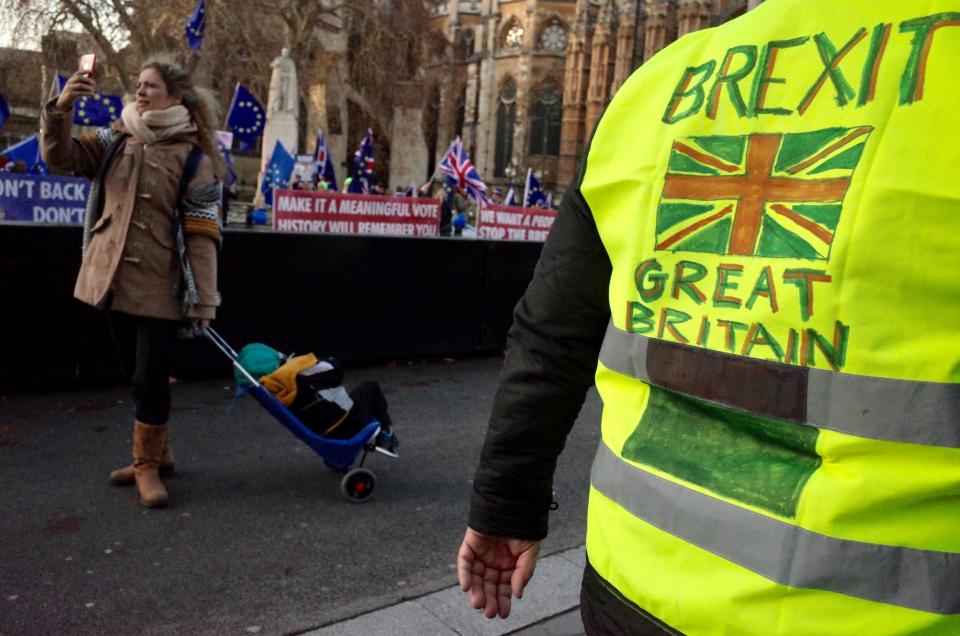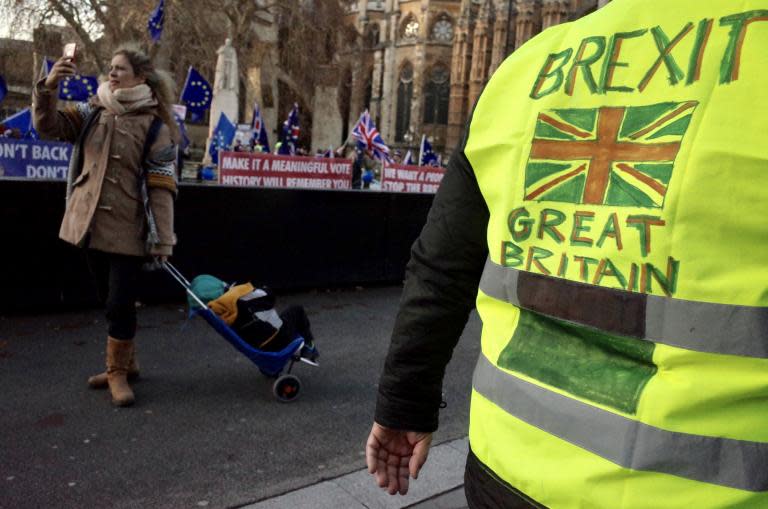The UK has the right to stop the Article 50 process, and the route to a Final Say is clearer than ever
Much has changed since the People’s Vote campaign published the Roadmap to a People’s Vote in September last year. That’s why this week we published an updated edition. As the Brexit clock ticks ever more loudly, the case for a people’s vote has grown stronger in at least four ways.
First, the terms of the government’s proposed withdrawal “deal” are now known and have been roundly criticised both by those who voted for Brexit and those who did not. A clear majority of MPs are on record as opposing the deal. And no wonder: despite the wording of Article 50, it provides no clear framework for an eventual permanent relationship with our European neighbours but would, for an indefinite period, leave us stuck in the limbo of obeying EU rules in which we no longer had any say. Facing a heavy defeat, the prime minister chose to deny the Commons their “meaningful vote” in December, but the four wasted weeks since then have not changed the deal. The government is now braced for a heavy defeat on Tuesday evening.
Second, responding to the warnings of business, trade unions, farmers, the City, the NHS, universities, investors and markets, MPs from across the House, including several ministers, have rightly ruled out a no-deal Brexit. This is because the scale of the disruption a no-deal Brexit would cause has become much clearer, and with it the irresponsibility of claiming that crashing out in March with nothing agreed is the only default option if the Commons votes down the May deal. The government’s defeat this week on Yvette Cooper’s amendment to the Finance Bill demonstrated that such blackmail won’t work. And the foreign secretary, Jeremy Hunt, effectively conceded yesterday that MPs have the ability to block a no-deal Brexit.
Third, parliament has acted to ensure that it can step in, taking back control and breaking the deadlock. An amendment passed by the Commons this week means that if, or rather when, the May deal is rejected, the government will have to bring forward a new plan within three days. This will also be amendable, so if there is a realistic chance of success, a people’s vote amendment could be tabled. In any case, it is now clear that further votes will follow, so such an amendment could prove to be the opening shot in the battle to come. It would certainly not be the last chance. MPs will not sit on their hands if the government tries to run down the clock. And they will be aware that polls now consistently show a majority of the public favour staying in the EU if they are given the chance through a people’s vote.
Last, and perhaps most significant of all, the EU Court of Justice confirmed on 10 December that the UK has the absolute right to stop the Article 50 process, withdraw Ms May’s letter, and remain an EU member state. When I argued, back in 2017, that “the die is not irrevocably cast”, some claimed that our staying in the EU would require the permission of the other 27, who would be able to make us pay a price: the court has confirmed that they were wrong – the decision is for us alone, and the terms of our membership could not be changed to our disadvantage.
So the deal on the table isn’t popular; parliament won’t permit a no-deal crashout; there’s the valid third option of keeping the deal we now have, as an EU member state; and parliament can step in, insisting that the people should have the right to decide, and that the government should obtain the necessary postponement of the 29 March deadline. The 27 might be disinclined to allow an extension just to permit more posturing and prevarication, but there is no doubt that they would agree if we were to need the time to consult the country.
How would the people vote?
The polls now show a consistent 8 per cent lead in favour of staying in the EU. Strikingly, the margin rises to between 16 and 26 points if responders are asked to choose between keeping the deal we now have and either of two specified options for leaving: the government’s deal, or no deal. These are facts MPs of all parties might wish to keep in mind as they consider the options the government is now offering. They should reflect on how the will of the people can be best determined now that the public can make an informed choice.
John Kerr is an independent member of the House of Lords. He wrote the foreword to a new paper published today by the People’s Vote campaign, Roadmap to a People’s Vote: The Route Opens Up

 Yahoo News
Yahoo News 

